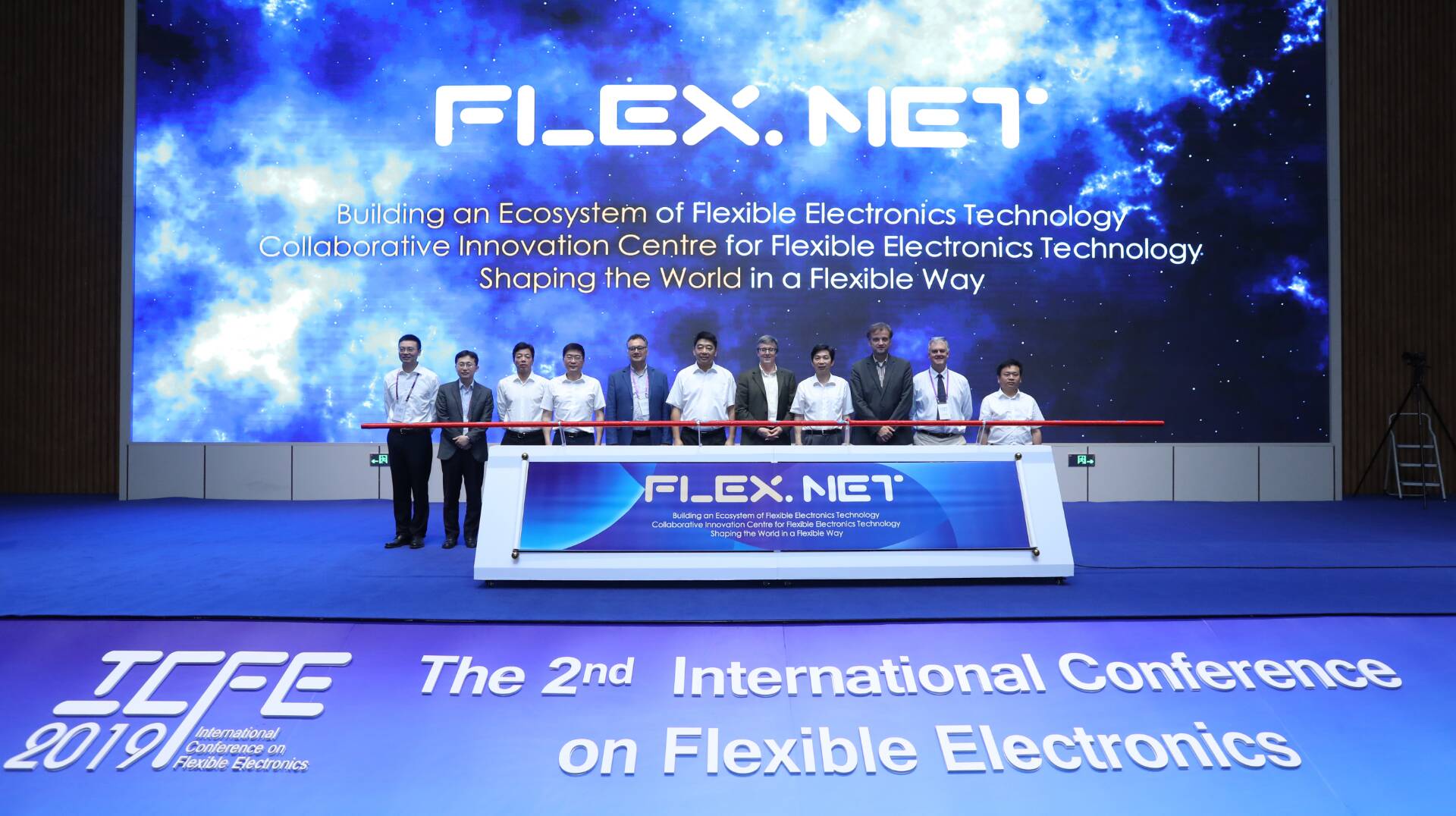2019 International Conference on Flexible Electronics opens in Zhejiang
- By Yuan Fang
 0 Comment(s)
0 Comment(s) Print
Print E-mail China.org.cn, July 13, 2019
E-mail China.org.cn, July 13, 2019

The 2019 International Conference on Flexible Electronics (ICFE 2019) opened in Hangzhou, capital city of east China's Zhejiang province, on July 13.
The event was jointly sponsored by the Collaborative Innovation Center for Flexible Electronics Technology, the Center for Flexible Electronics Technology of Tsinghua University and Hangzhou's Qiantang New Area. More than 600 experts and scholars in the field of flexible electronics from China, the United States, the Republic of Korea, Singapore, Australia, Belgium and Sweden attended the conference.
The ICFE, inaugurated in 2018 in Zhejiang, will continue focusing on the cutting edge field of flexible electronics this year and aims to offer a preeminent global forum for the reporting of methodological and technological breakthroughs. This includes, but is not limited to organic flexible electronics, flexible displays, inorganic flexible electronics, stretchable electronics, flexible power sources, bio-mimetic electronics, reconfigurable electronics, transient electronics, bio-integrated electronics, wearable electronics, and soft actuators/robots, said Feng Xue, chair of the conference's organizing committee and professor of the School of Aerospace Engineering in Tsinghua University.
As the host province of the conference, Zhejiang is leading China in the development of a comprehensive flexible electronics industry.
Flexible electronics marks a new direction for the development of electronic technologies and Zhejiang, one of China's most innovative provinces, is striving to become a national and global hub for flexible electronics, said Zhang Yiwen, deputy director of the Zhejiang Provincial Department of Science and Technology.
The Institute of Flexible Electronics Technology of Tsinghua, Zhejiang and the Global Research Center for Flexible Electronics & Intelligent Technology, which are the co-organizers of the conference, are both located in Zhejiang and represent the province's efforts to develop the flexible electronics industry.

At the opening ceremony, the Collaborative Innovation Center for Flexible Electronics Technology and the Center for Flexible Electronics Technology of Tsinghua University also announced the establishment of Flex.net. This initiative is an academic alliance that is expected to pool resources and new innovations in flexible electronics to forge an ecosystem favorable for industry-university-research integration.
Under the alliance, the Collaborative Innovation Center for Flexible Electronics Technology will work with academia, industry, government, independent laboratories and other not-for-profit institutes to industrialize laboratory results by focusing on research, addressing major needs and pursuing innovation.
The two-day conference will highlight 23 academic reports. Among the esteemed speakers will be John A. Rogers, a member of the US National Academy of Sciences, the US National Academy of Engineering and the American Academy of Arts and Sciences, who will speak on "Soft Electronic and Microfluidic Systems for the Skin"; Takao Someya, professor of the University of Tokyo, Japan, who will speak on "Stretchable Nanomesh Electronics for Wearables and in Vitro Characterizations"; and George Malliaras, professor of the University of Cambridge, who will speak on "Interfacing with the Brain Using Organic Electronics".
The conference will also host a roundtable where John A. Rogers, George Malliaras and Takao Someya will discuss the current bottlenecks in flexible electronics and propose strategies along with Paul Burn, professor of the University of Queensland, Australia; Oliver G. Schmidt, professor of the Leibniz Institute for Solid State and Materials Research Dresden (IFW Dresden), Germany; and Chen Xiaodong, professor of Nanyang Technological University, Singapore.
During the conference, the Global Research Center for Flexible Electronics & Intelligent Technology, located in Hangzhou, will also release two flexible chips developed by its team.
Flexible electronics, also known as flex circuits, is a technology for assembling electronic circuits by mounting electronic devices on flexible plastic substrates, such as polyimide, PEEK or transparent conductive polyester film. Additionally, flex circuits can be screen printed silver circuits on polyester. It is believed the technology will have a huge and far-reaching impact on integrated circuit, digital medical care, artificial intelligence, intelligent manufacturing and the Internet of the Things.






Go to Forum >>0 Comment(s)